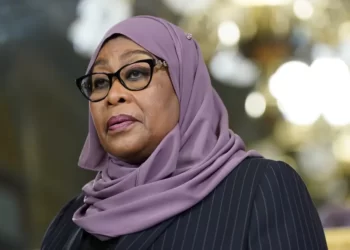The COVID-19 pandemic cost women around the world over $800 billion in lost income in 2020, representing more than the combined GDP of 98 countries, Oxfam International suggests.
Available data show that women have been the worst affected by the pandemic. Globally, women lost more than 64 million jobs last year, representing a 5% loss, compared to 3.9% loss for men. While alarming, this estimated loss of income only captures those of women in formal employment. Thus, to include those in informal employment will shoot up the loss in women’s income.
“Economic fallout from the COVID-19 pandemic is having a harsher impact on women. [These] are disproportionately represented in sectors offering low wages, few benefits and the least secure jobs, said Gabriela Bucher, Executive Director of Oxfam International.
“Instead of righting that wrong, governments treated women’s jobs as dispensable —and that has come at a cost of at least $800 billion in lost wages for those in formal employment.”
“This conservative estimate doesn’t even include wages lost by the millions of women working in the informal economy —domestic workers, market vendors and garment workers— who have been sent home or whose hours and wages have been drastically cut…”
Gabriela Bucher, Executive Director of Oxfam International.
Furthermore, women are overrepresented in low-paid sectors, such as retail, tourism and food services, that have been hardest hit by the pandemic. Across the world’s developing regions of South Asia, sub-Saharan Africa and Latin America, a huge proportion of women work in informal employment. Women also make up about 70 percent of the world’s health and social care workforce. Although essential but often poorly paid jobs that put them at greater risk from COVID-19.
Efforts to address the problem insufficient
“For women in every country on every continent, along with losing income, unpaid care work has exploded. As care needs have spiked during the pandemic, women —the shock absorbers of our societies— have stepped in to fill the gap…” Bucher commented.
According to Oxfam, the effects of the pandemic will remain uneven for years to come. An additional 47 million women worldwide are expected to fall into extreme poverty, living on less than $1.90 a day in 2021.
Although governments across the world have implemented measures to address women’s economic and social security, they have largely been insufficient. For instance, the provision of $39 billion in the US into the childcare sector. Only 11 countries have introduced shorter or flexible work arrangements for workers with care responsibilities, while 36 have strengthened family and paid sick leave for parents and caregivers.
“As we move from emergency measures to long-term recovery, governments around the world must seize this opportunity to build more equal, more inclusive economies for all. They must invest in a gender, racial and climate-just economic recovery that prioritizes public services, social protection, fair taxation, and ensure everyone everywhere has access to a free vaccine,” added Bucher.
“A fair and sustainable economic recovery is one that supports women’s employment and unpaid care work through strong social safety nets and vibrant care infrastructures. Recovery from COVID-19 is impossible without women recovering.”
Gabriela Bucher, Executive Director of Oxfam International.
READ ALSO: IMF staff propose a new long-term macroeconomic framework to achieve the SDGs























